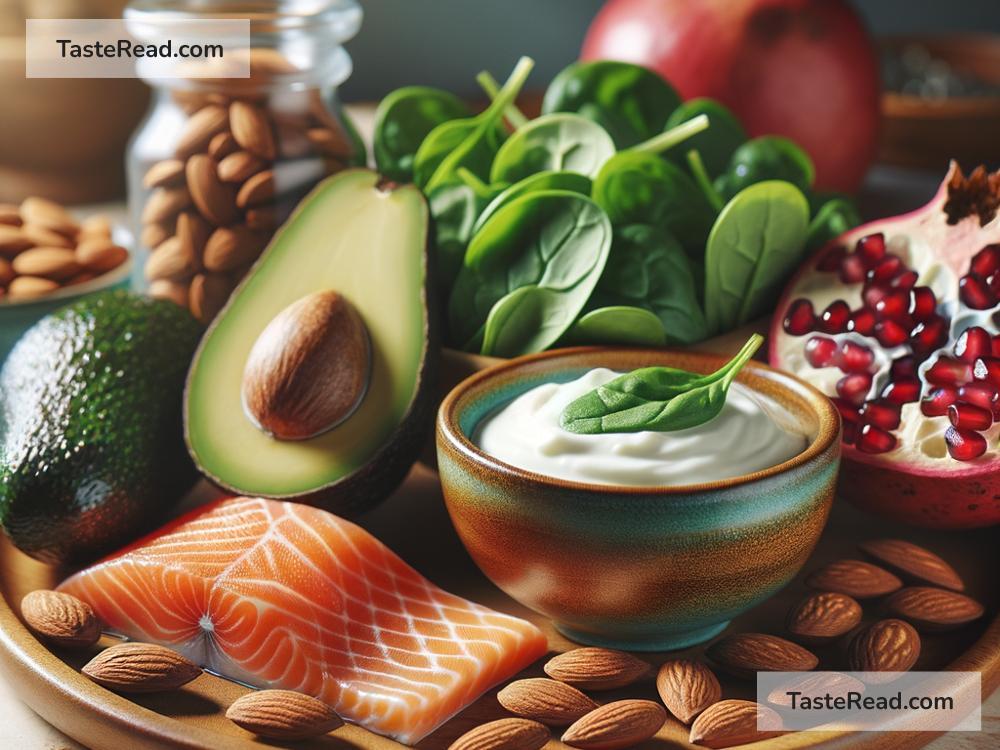Foods for Improving Reproductive Health: Nurturing Your Body for Future Generations
Reproductive health plays a significant role in overall well-being, whether you’re hoping to grow your family, balance your hormones, or simply live a healthier life. The food we eat has a direct impact on fertility and reproductive health, for both men and women. By adding the right nutrients to your diet, you can support hormonal balance, improve egg and sperm quality, and even regulate your menstrual cycle. In this blog, we’ll explore simple, wholesome foods that can help improve reproductive health naturally.
1. Leafy Green Vegetables
Green vegetables like spinach, kale, and broccoli are packed with essential nutrients such as vitamins A, C, and K, as well as folate. Folate is especially important for women who are trying to conceive because it helps prevent birth defects and supports healthy cell growth. Vitamin C in greens also boosts immunity and improves sperm motility in men. Adding a handful of greens to your meals, whether in salads, soups, or smoothies, can give your reproductive system a nourishing boost.
2. Fruits Rich in Antioxidants
Antioxidants fight free radicals that can harm cells, including eggs and sperm. Fruits like berries (strawberries, blueberries, raspberries), oranges, and pomegranates are rich in antioxidants like vitamin C, vitamin E, and beta-carotene. Pomegranates, in particular, stand out due to their ability to improve uterine health and blood flow. Men can also benefit from these antioxidants since they are known to reduce oxidative stress, which can damage sperm. Snack on fresh fruits throughout the day or blend them into delicious smoothies.
3. Healthy Fats
Healthy fats found in foods like avocados, nuts, seeds, and fatty fish are essential for hormone production and regulation. Hormones are the messengers that control reproductive functions, and having a balanced hormone system promotes ovulation, menstrual health, and sperm production. Omega-3 fatty acids, found in salmon, mackerel, and walnuts, are crucial for maintaining blood flow to reproductive organs. Spread avocado on toast, snack on almonds, or enjoy grilled fatty fish for a tasty way to support reproductive health.
4. Whole Grains
Refined grains like white bread and sugary cereals can lead to blood sugar spikes, which may disrupt hormone balance. In contrast, whole grains like brown rice, quinoa, oats, and whole wheat provide steady energy and are packed with vital nutrients like zinc and fiber. Zinc is particularly important for men, as it’s linked to high-quality sperm production. Women can also benefit, as whole grains help regulate periods by keeping insulin levels stable. Swap white rice for brown rice or enjoy a bowl of oatmeal for breakfast.
5. Dairy Products
Dairy is not only a good source of calcium for strong bones but also a source of essential vitamins and proteins like vitamin D and choline. Full-fat dairy products such as milk, yogurt, and cheese have been shown to support ovulation in women and improve sperm quality in men. Moderation is key, so aim for one or two servings of full-fat dairy per day. If you’re lactose intolerant, try fortified non-dairy alternatives like almond milk or soy yogurt.
6. Protein-Rich Foods
Protein is an essential nutrient for cell repair and hormone production. While animal-based proteins like lean chicken, eggs, and fish are excellent options, plant-based proteins such as lentils, beans, tofu, and chickpeas are equally beneficial. Choose plant-based proteins more often, as they’re lower in saturated fats, which can disrupt hormone function. Protein helps support the growth and health of reproductive cells like eggs and sperm. Add beans to your salads, enjoy roasted chickpeas as a snack, or include fish in your dinner menu.
7. Seeds and Nuts
Tiny but mighty, seeds and nuts are packed with nutrients that support reproductive health. Pumpkin seeds, sunflower seeds, and flaxseeds are rich in zinc, magnesium, and omega-3 fatty acids, which are vital for fertility. Brazil nuts, in particular, are high in selenium, a mineral that helps protect sperm from genetic damage. Sprinkle these seeds into your smoothies, yogurt, or salads, or snack on a handful of almonds or walnuts to stay energized throughout the day.
8. Colorful Vegetables
Vegetables of all colors—like sweet potatoes, carrots, peppers, and tomatoes—are rich in vitamins and antioxidants. Sweet potatoes, for example, contain beta-carotene, which helps regulate hormone production. Red and orange veggies like tomatoes are packed with lycopene, which supports sperm health and motility. Aim to eat a rainbow of vegetables regularly to ensure you’re getting a diverse mix of nutrients for your reproductive system.
9. Iron-Rich Foods
Iron is essential for women because it prevents anemia and supports healthy blood flow during menstruation and pregnancy. Foods like lean red meat, beans, lentils, spinach, and fortified cereals provide iron that’s easily absorbed by the body. Pair iron-rich foods with a vitamin C source (like lemon or tomatoes) to aid absorption. This combination helps nourish your body while preparing for conception or maintaining menstrual health.
10. Water and Hydration
While food is vital, don’t forget that hydration is equally important. Drinking enough water helps maintain cervical mucus, which plays a role in conception. For men, staying hydrated improves the quality of seminal fluid. Aim to drink at least 8 glasses of water daily and reduce sugary drinks like sodas and energy drinks.
Final Thoughts
Improving reproductive health doesn’t require drastic changes—it’s all about making small, sustainable decisions for your body. By incorporating these nutrient-packed foods into your diet, you’ll not only nurture your reproductive system but also support your overall health. Keep in mind that lifestyle factors like exercise, stress management, and sleep also play a huge role, so try to focus on a balanced approach to wellness. Remember, taking care of your body today is an investment in your future. Start with these simple food choices and work toward your healthiest self.


